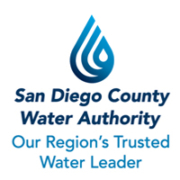The Water Quality Association’s Board of Directors recently heard from Environmental Protection Agency Administrator Andrew Wheeler in a conference call in which Wheeler underscored the value of water treatment during the COVID-19 crisis.
“You’re providing a critical service to the American public, and we want to make sure you have the resources you need to provide that service,” said Wheeler, who reiterated the importance of continued dialogue after hearing the perspectives of several directors during the call.
Wheeler emphasized that his office remains open for business during the COVID-19 crisis, and that action continues on other fronts such as drinking water standards, expanding funding to manage per- and polyfluoroalkyl substances (PFAS), updating the Lead and Copper Rule and a new water reuse action plan designed to accelerate water recycling efforts across the country.
“It was a great call and very informative for our Board,” says incoming WQA President D.J. Shannahan, who was among the directors to address Wheeler. “We appreciate his willingness to listen to our needs while also sharing his priorities for improving the water quality of our nation.”




